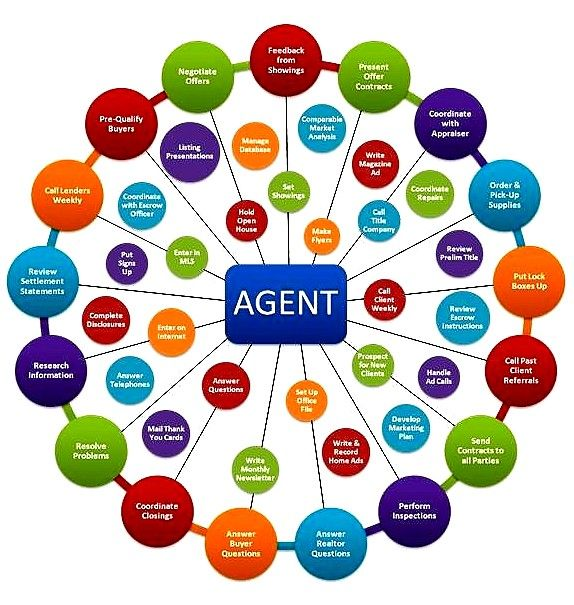Understanding the Key Distinctions In Between a Real Estate Agent and Realty Agents for an Effective Residential Or Commercial Property Transaction
Navigating the complexities of actual estate purchases requires an understanding of the unique roles played by Realtors and real estate representatives. Realtors, bound by the stringent code of ethics of the National Organization of Realtors, guarantee a level of honesty that may not be assured with all actual estate representatives.
Specifying Real Estate Agents and Agents


In the genuine estate industry, differentiating in between a Real estate agent and a realty representative is important for comprehending their distinct roles and qualifications. A property agent is a specialist that has acquired a license to help buyers and vendors in actual estate purchases. They work as middlemans in the trading of homes, guaranteeing smooth interaction and settlement between the parties involved. Representatives are accountable for noting properties, conducting market evaluations, and guiding customers with the intricacies of property purchases, including agreement preparation and closing treatments.
On the various other hand, a Realtor is a licensed real estate representative that is likewise a member of the National Association of Realtors (NAR) While all Realtors are real estate agents, not all actual estate representatives are Realtors, making this difference crucial for clients seeking a professional with a dedication to honest techniques.
Licensing and Credentials
Acquiring a real estate permit is the fundamental step for people aspiring to come to be either a realty agent or a Real estate professional. Elizabeth Leanza Synergy Realty Realtor. This process typically includes finishing an established number of pre-licensing instructional hours, passing a state-administered examination, and meeting any additional state-specific needs. The educational curriculum normally covers essential topics such as realty concepts, residential property regulations, contracts, and finance, outfitting prospects with comprehensive sector expertise
While all Real estate professionals are real estate agents, not all real estate agents are Realtors. To become a Real estate agent, a qualified genuine estate agent must sign up with the National Organization of Realtors (NAR), which calls for adherence to a stringent set of criteria and conclusion of additional education and learning.
Honest Criteria and Codes
Upholding honest criteria is a foundation of professional practice in the realty industry. These requirements distinguish a Realtor from a basic actual estate representative, impacting just how they carry out organization. Realtors, participants of the National Association of Realtors (NAR), abide by a strict Code of Ethics, developed in 1913, which mandates sincerity, integrity, and expertise. This code includes 17 write-ups focusing on obligations to clients, the general public, and other Real estate agents, covering concerns like client privacy, truthful advertising, and reasonable therapy.
In comparison, real estate agents should comply with state licensing laws, which offer a baseline of honest behavior however might not be as comprehensive or stringent as the NAR's Code of Ethics. While agents are bound to run legitimately and fairly, the absence of an universally applied ethicality can lead to variability in practice criteria.
For customers, understanding these differences is essential - Elizabeth Leanza Synergy Realty Realtor. A Real estate agent's dedication to a greater moral criterion can give extra guarantee of professionalism and trust and responsibility. When selecting between a Real estate agent and a property agent, recognizing the significance of ethical codes can assist customers toward a specialist who aligns with their assumptions for ethical conduct in residential property deals

Effect on Purchases
Comprehending the moral criteria that Realtors stick to supplies a structure for examining their impact on property deals. Realtors, as participants of the National Association of Realtors (NAR), are bound by a rigorous Code of Ethics, which significantly affects their communications and settlements in residential or commercial property transactions. This adherence to moral techniques makes have a peek here certain openness and stability, promoting trust in between all events involved. Such trust fund is critical for a successful transaction, as it can improve communication and assist in smoother arrangements.
The Real estate professional's commitment to moral standards translates right into a more expert and reliable service, often leading to quicker and extra efficient deals. Their commitment to act in the most effective rate of interests of their customers can bring about better results, such as safeguarding favorable terms or determining possible problems early at the same time. In addition, Realtors are furnished with detailed market expertise and resources, reinforcing their ability to browse intricate purchases expertly.
On the other hand, realty representatives that are not Realtors might not be bound by the very same rigorous click to investigate honest standards. This difference can impact the deal process, potentially introducing variability in service quality and customer fulfillment degrees. Elizabeth Leanza Synergy Realty Realtor. Inevitably, the influence of a Realtor's moral commitment can be substantial, advertising favorable experiences and successful building purchases
Picking the Right Specialist
Selecting the proper real estate specialist is a crucial action in ensuring an effective building transaction. The option in between a Realtor and a genuine estate representative pivots on several elements, including the details requirements of the deal and the degree of proficiency required.
On the various other hand, realty representatives that are not Realtors can still offer high levels of solution and proficiency. Their skills and experience need to be examined based upon their record, neighborhood market knowledge, and client endorsements. When selecting between these professionals, consider their experience with the type of property included and their settlement skills, which are critical for achieving beneficial terms.
Ultimately, the choice must be educated by thorough study and personal interviews to evaluate compatibility and interaction style. This makes certain that the chosen professional aligns with the customer's objectives and assumptions, paving the means for a smooth building transaction.

Verdict
In recap, identifying in between Realtors and genuine real estate offices estate agents is essential for navigating property deals effectively. Picking a Real estate professional can dramatically enhance the overall experience and self-confidence in the buying or offering process, eventually contributing to even more successful building dealings.